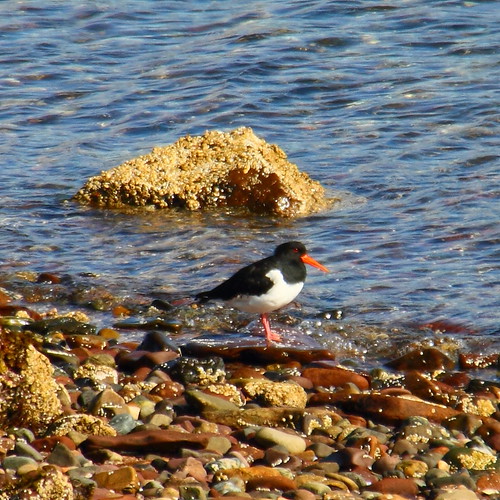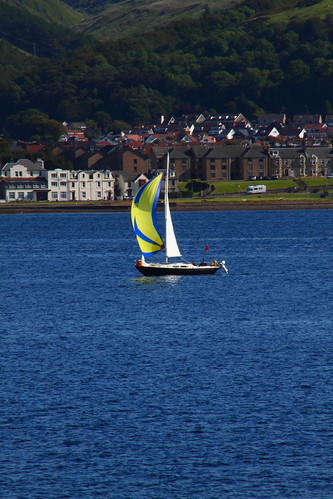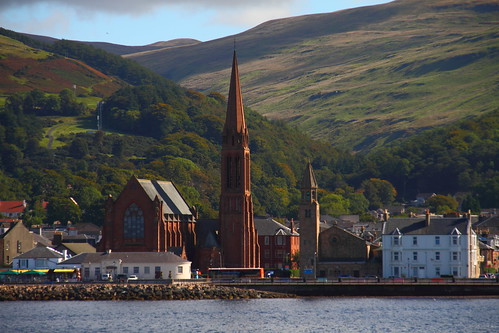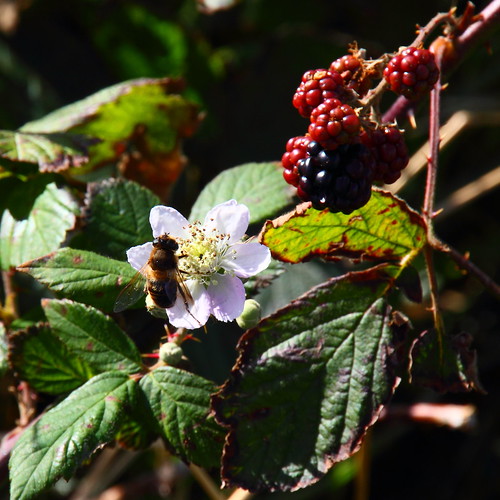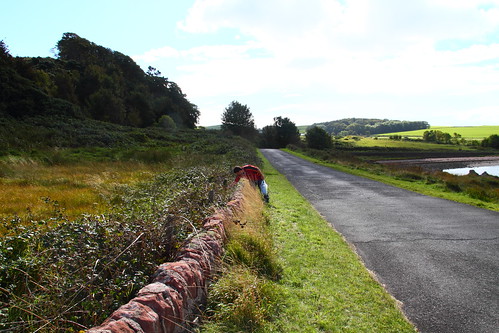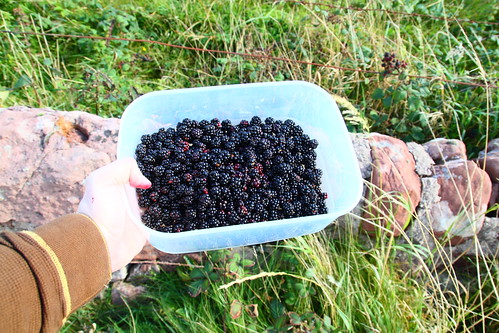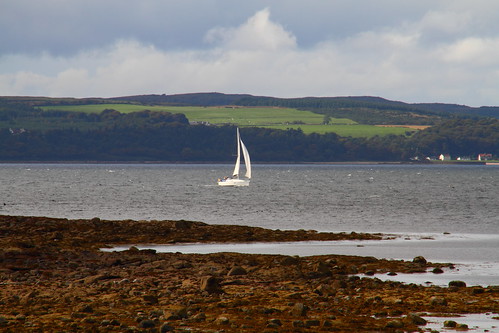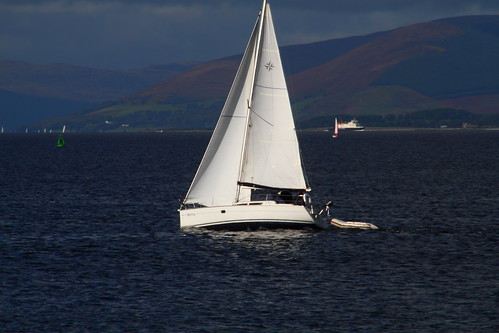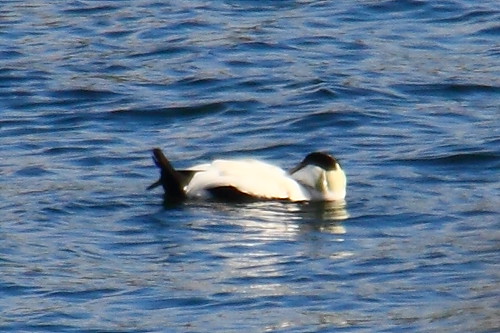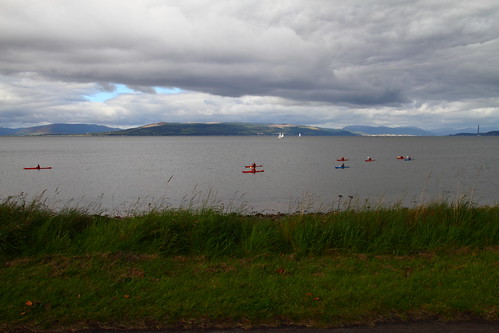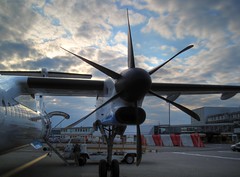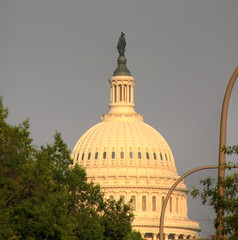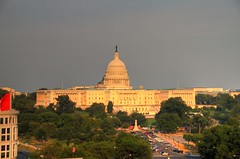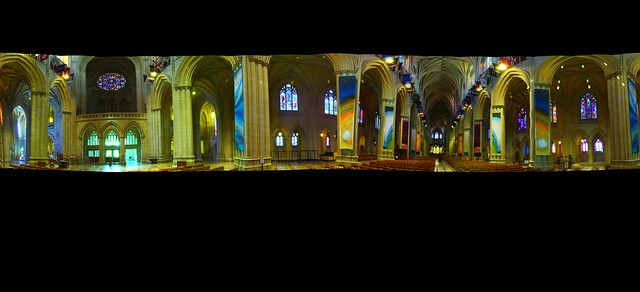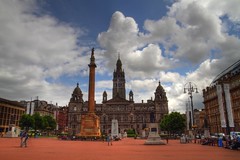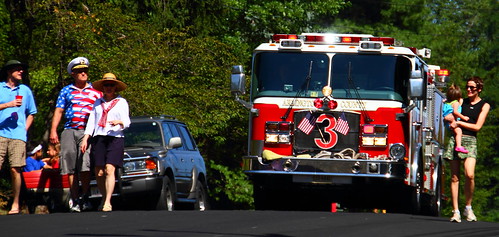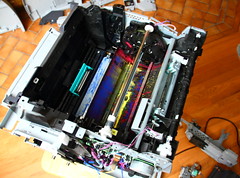
Things are uneven here, for one week more. The U.S. (sans Hawaii and Arizona) are on Daylight Savings Time; the UK doesn’t go ’til next week. Somehow, the Spring Equinox is on the calendar already, and while elsewhere there might be sun, this morning it is drenching, pouring rain. Feels like we’re a little behind the curve in all sorts of things.
…both D. & T. are just working hard — T. is giving her first Skype/Google Video classroom book chat this week, trying to finish an essay she was requested to write for the Vermont College of Fine Arts literary journal, racing the clock to finish a novel revision by the end of March (only a hundred pages or so to go — theoretically) and waiting with crossed fingers to hear from her agent who is meeting with other agents in Bologna this week. It is hoped that she will soon have foreign language editions of her novels winging their way across the world. Meanwhile, D. has another two thousand words to add to his PhD dissertation/thesis by the end of April… and of course, his job has suddenly put the screws into him to work extra hours to finish a project that has suddenly been accelerated from This Would Be Nice to Crucially Utterly Very Important Now! (On the up side, he did get a small raise! Whoo hoo!) We’re scrambling just to keep up. Life as usual, in other words.

Meanwhile, we took a little rest on the weekend to go on our first International Family Trip of the term, visiting the UNESCO site of Robert Owen’s mill in New Lanark, an hour from the University (in a bus. Probably twenty minutes by any other conveyance). Students of 18th century history will perhaps recognize the name of one of Owen’s contemporaries; Jeremy Bentham, the well-meaning, but ultimately REALLY ANNOYING 18th century social reformer. Benthan and Owen worked to change working conditions in the cotton mills during the Industrial Revolution, and successfully lobbied to raise the age of child laborers from five to ten, then eventually, twelve.
Much of this site was indoors — an interactive schoolhouse with desks and costumes for dress-up, a model of a mill worker residence, an interactive ride, a hotel, and a couple of gift shops. This is a reasonable place to go on a rainy day, and though it was a little tricky for a few members of our Stroller Brigade, most of us managed to get around and enjoy all that was offered. The guides were good at loading us up on the history of the place as well.
Robert Owens believed strongly in the formation of character through education, and supported education for all classes and both genders. While these things were positive — and the guides made sure to sing the praises of the great man — it was hard not to cringe at the saccharine platitudes and the religiosity that paraded as scientific theory on mental and moral development back then. Owens had very, very, very many rules that his workers had to live by — his ideas of what would make them healthy and prosperous and well-suited to society were basically sound, but it seemed that his belief was that just by being poor, his workers were incapable of making good decisions or being happy on their own. The Mill workers’ world was like a very well-polished version of indentured servitude, with everyone getting their food from the same place, wearing uniforms to school, and keeping house in the same way, as per the rules. And Master Owens checked up on his workers — paid workers checked the houses for cleanliness, and each worker in the mill had a little colored stick that was turned to reveal a color, based on how well the worker was thought to be doing his work. This was to promote the idea of society watching you and judging your work — thus the power of the group can make you a better worker bee.
The 18th century ideas of social reformation can come across as quite condescending to modern ears, despite Owens being at least three hundred years ahead of his time, at least in terms of child labor issues. While Owen’s idea was much more flexible than the prevailing notion that God had made the poor to serve the rich, the paternalism practiced by the wealthier classes, taking on their “burden” of better educating the poor gives one conflicting feelings! Much of what was proposed for the workers of New Lanark seemed to be the equivalent of buying a better saddle for your horse; at the end of the day, the horse is still a beast of burden, despite how well etched its bridle, and the pretty tooling on the leather. T. spent a lot of the day rolling her eyes, but she, sadly, possesses the accursed sarcasm gene, and cannot help herself. (She blames her mother, of course.)

Whatever T’s complaints, New Lanark was a progressive place. New Lanark had an on-site physician, for the many, varied and grisly mill accidents that were a fact of life. The mill had a little store, complete with bakery and butcher, where the workers could spend their money for groceries without having to go too far. Workers had the luxury of childcare — there was a nursery provided for all babies as soon as they could walk, and women from the village looked after them and fed them, and kept them ’til their parents could come for them at the close of the day. Education was provided for all, for children to the age of twelve, and continuing after-shift in the evening for twelve to adult. New Lanark also provided reading rooms and quiet places for adults to gather and sew and chat, and two nights a week, there was music and dancing. Occasionally, there were parenting classes.
Despite working those men, women and children ten hours a day, then eventually eight — and three of those before breakfast — the workers at Owen’s mill were much better off than they were elsewhere, where work shifts were typically from twelve to sixteen hour shifts. They had electricity in the tenements when Queen Victoria was on the throne — as opposed to Glasgow, which in some places was not out of gaslights until 1959 (!!!). New Lanark is still a working mill, and they spin wool now instead of cotton, thankfully. We got to see the big mill in action. The amount of fluff in the air is greatly reduced with wool instead of cotton, but oh, the clang of the machinery. No wonder so many workers in the 18th century went deaf very early in life.
T. kept muttering throughout the day that she would have never survived.
Another one of Robert Owens’ innovations for the poor was allowing them the pleasure of nature. He turned the roof of the second mill into a parkland, so that his people would have clean air and the simple pleasure of nature to make them more contented and better able to enjoy their lives. The roof garden is really nice — when all the flowers are up and the trees are in bloom, it must be spectacular — and the view of The Clyde and the falls and the village surrounding is lovely. We sat up and enjoyed the sun on our faces and the kids running in dizzying circles and playing in the water feature. The neatest thing about the garden is the tiny touches — brass sculpture of all sizes, topiary, words etched in the bench surrounding the fountain. It was very peaceful, and it was nice to imagine that in the long, sunlit days of summer, the workers actually got to enjoy the view.
When we came inside, D. discovered that the tea shop had just taken some macaroni pies out of the oven.

Now, every once in awhile, we attempt to eat regional dishes that other people eat. Beans-on-toast is something tons of people at D’s job eat for lunch every day, and the same beans are served with tomatoes and mushrooms in a traditional Scottish breakfast — but T.’s not ever actually eaten them.
It was time to remedy that.
(Later, T. asked herself why she had decided this.)
We’d heard of macaroni pie — it’s really popular on take-out menus in coffee shops around the city. No one yet has been able to adequately explain why you’d want to put pasta into a crust, but it’s just One Of Those (Scottish) Things, and we rolled with it. The consistency of the mac-and-cheese is just like a baked macaroni casserole like you’d have around Thanksgiving if you were from the American South. The thin bread crust isn’t flaky like a pie crust as much as it is crisp like thin toast. It wasn’t bad at all, only different, and it was a nice small portion. The beans are what still make T. slightly green to remember. Still – we felt quite un-touristy as we sampled the local fare. We decided to come back and have a pot of tea later, and while the sun was shining, went off to climb Clyde Falls.

One of Owens’ other reasons for staging his little village of New Lanark in its current location is the Falls of Clyde. The rushing water naturally and easily fed the mill’s waterwheel. Currently, the hydroelectric plant at the modern mill powers the entire village — which is neat. The best part for us was just to hear the roar of the falls. It tends to drown out most conversation and the busy little thoughts that circle. It was loud enough to allow us to just…be.
This past winter, the falls actually froze for the first time in long memory. In the 1750’s, when the Clyde froze, people had to walk the waterwheel to get the power fed to the mill turbine. Nowadays, they can do it via electricity, we suppose, although, just for the sake of history, they may have had someone go in and walk the wheel again! Brr.

New Lanark was a pleasant place to hang out for a few hours on a cool day in early spring, and the falls was a great, easy hike on an only slightly mucky trail. The luxuriant moss, the deep holes that were maybe badger setts (we never saw the badgers, though we were told they were about), the slightly greening trees and massive crowds of shrieking, unidentifiable-but-apparently-happy birds — all was lovely. We really just enjoyed the view of the sky, and looking up to see only the barest wisps of white clouds. And when those clouds multiplied, and gathered — well, it was time to go home.
Poor Robert Owen eventually left New Lanark, because the Cotton Kings weren’t really interested in educating their workers — these were the underpinnings of the slave trade, of course, and who wanted that fun to stop? — and he was considered a social pariah, and was genially hated by the rich, who felt he was giving the poor Ideas Above Their Station. He took his ideas to Indiana, and his Utopian society there came to a drastic end, as unfortunately Indiana was in the grip of swamp fever, and Owens not only lost his workers, he lost his money. Still, he carried on, returning to the UK to continue to lecture and write about social reform, and eventually become one of the fathers of socialism. And, thus because T. feels slightly guilty for being so hard on the brilliant-before-his-time Robert Owens, we’ll actually quote him:
“As there are a very great variety of religious sects in the world (and which are probably adapted to different constitutions under different circumstances, seeing there are many good and conscientious characters in each), it is particularly recommended, as a means of uniting the inhabitants of the village into one family, that while each faithfully adheres to the principles which he most approves, at the same time all shall think charitably of their neighbours respecting their religious opinions, and not presumptuously suppose that theirs alone are right”. (Rules and Regulations for the Inhabitants of New Lanark, 1800)
“It is therefore, the interest of all, that every one, from birth, should be well educated, physically and mentally that society may be improved in its character, – that everyone should be beneficially employed, physically and mentally, that the greatest amount of wealth may be created, and knowledge attained, that everyone should be placed in the midst at those external circumstances, that will produce the greatest number of pleasurable sensations, through the longest life, that man may be made truly intelligent, moral and happy, and be, thus, prepared to enter upon the coming Millennium”. (A Development of the Principles & Plans on which to establish self-supporting Home Colonies, 1841)
“To preserve permanent good health, the state of mind must be taken into consideration”. (Book of the New Moral World, 3rd Part. 1842)
There. You do feel much more morally sound, do you not?

Roof gardens on a beautiful day improve one’s state of mind.
